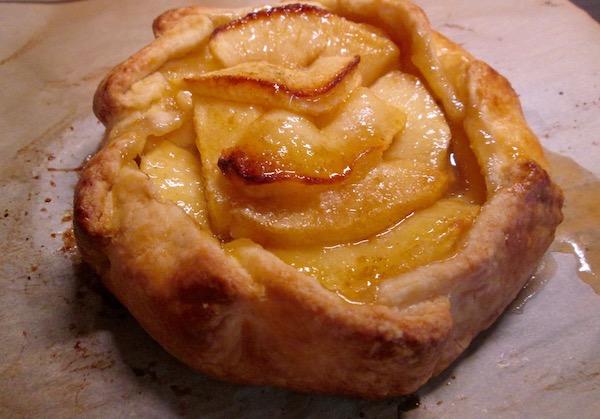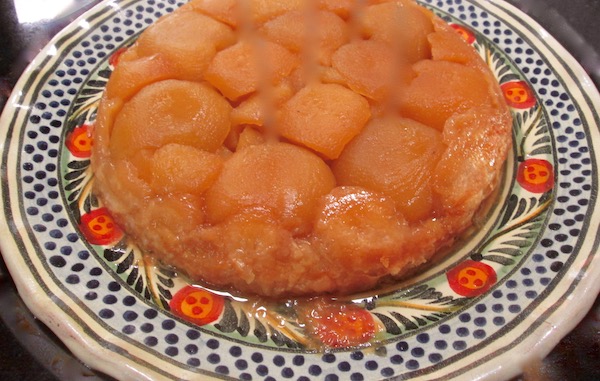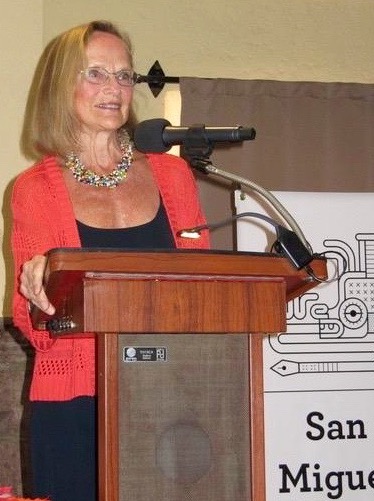In this week’s Catching Health newsletter, I asked people how they were coping these days. One of the replies I got came from Bonnie Lee Black. We’ve never met before, but I’ve since learned that she is a retired professional writer and editor. In 2015 at the age of 70, she moved to San Miguel de Allende, Mexico. I am a bit jealous.
But even in retirement, Bonnie is obviously quite busy. She has an award-winning blog called The WOW Factor: Words of Wisdom From Wise Older Women and is currently working on her fifth book. Along with writing, what she has been doing during the COVID lockdown is cooking. She spent a decade as a chef, caterer, and cooking instructor in Manhattan. She also wrote about cooking, and that’s what she’s writing about now. The title of her new book is Sweet Tarts for My Sweethearts. So what do you suppose she’s been making these days? Why, tarts, of course.
With her permission, I am sharing Bonnie’s most recent post. The pictures show that she is a master in the kitchen. The story she weaves shows that she is a master of words. She’s also gifted at folding in a few lessons. You’ll find the post and many others on The WOW Factor. I encourage you to explore her blog. I did and was quite inspired and entertained. Thank you, Bonnie, and so happy to meet you!
Kitchen Lessons
Searching for an upside to the coronavirus-pandemic lockdown that has gone on tiresomely long already, I recently came up with this: Maybe in these past months, lots of us worldwide have become reacquainted with our kitchens, as if with a long-lost love.
And perhaps we’ve actually been having fun in the process – experimenting with new recipes or dusting off old favorites, tasting novel ingredients, trying out different cooking techniques, taking pride in the sometimes-yummy results.
Or perhaps I’m just projecting?
I’ve been finding that one of the best things about my new apartment here in San Miguel de Allende’s Colonia Guadalupe is the kitchen, with its brand-new, reliable Whirlpool stove/oven, spacious fridge and freezer, and generous counter tops.
So in these recent, COVID-19-ridden months here, I’ve returned to my old, catering ways. I’d thought I’d retired that hat (and chef’s jacket), but, no. The urge to cook and bake has come roaring back like an addiction – a good addiction, that is, provided I share the results of my efforts with neighbors and friends.
Working in this lovely little kitchen, I’ve been reminded of all that dedicated cooking can teach us, such as how to pay attention to timing and details, how to use all of our senses in concert – sight, smell, taste, touch, and, yes, even hearing (sizzle!), how to follow a recipe step by step as if it were a dance partner. For me, a workable kitchen has often felt like a bright classroom, where important, even joyful, life lessons can be learned. Oh, and also, in one way, like a church.
In Shakespeare’s play “As You Like It,” Duke Senior, living in exile deep in the Forest of Ardenne, optimistically announces to his men that he “finds tongues in trees, books in the running brooks, sermons in stones, and good in everything” (Act II, scene 1). I’ve always found this scene to be particularly inspiring, so I tend to search for sermons in unorthodox places too, not just in a church. Lately, it’s been in my kitchen.
For example, I’ve been baking sweet tarts in recent weeks for the book I’m working on, aptly titled Sweet Tarts for My Sweethearts. These tarts are French – not to be confused with American pies. French tarts are normally baked in special tart pans, made in France, of course, with vertical sides and removable bottoms, unlike pie pans with slanted sides.
After the tart is baked and the sides of the pan are removed, the result is like a crown made of golden pastry, filled with jewel-like fruit or other filling. To me, such desserts are truly fit for kings and queens. They’ve always been my favorite thing to bake.
But — leave it to the French and their admirable post-Revolution national motto, “liberté, égalité, fraternité” — not all French tarts are made in a special and, for some, expensive pan. There’s a rustic type of free-form, farm-style French tart called a galette that doesn’t require a pan at all. All you basically need is a disc of sweet dough, some fresh seasonal fruit, and a little sugar.
Here is a small apple galette I baked yesterday:

The lesson (or sermon) takeaway from this type of tart for me is that just about anyone, anywhere, can bake one when the fruit is plentiful and in season. No special equipment or ingredients are needed. Wealth is not a requirement for the finest things in life, such as this galette.
An altogether different type of tart, one that originated in the central region of France in the late 19th century, is the celebrated Tarte Tatin. The true story of its origin is murky now, but the humorous version I learned in cooking school in New York thirty-five years ago goes something like this:
It began as a flop, literally, in an inn in Sologne, when one of the harried Tatin proprietresses accidentally dropped her freshly made apple tart upside down on the floor, scooped it up and served it anyway. The Tarte Tatin has since become one of the classic recipes of France and ubiquitous around the world.
Here is an apple Tarte Tatin I made the other day:

And the lesson (sermon) here, of course, is that mistakes can be righted. Good can come out of seeming disasters. Things can turn around.
It’s important to keep this in mind these days as we read the news.
For these tart recipes and many more, plus their accompanying photos and stories, please stay tuned for the imminent birth announcement of my sweet little Sweet Tarts book!
Bonnie Lee Black, Author and blogger at The WOW Factor


Leave A Comment